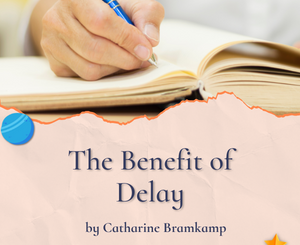Six Games to Play With Reality and Your Readers by Wyatt Bessing
Welcome back to our monthly columnist, Wyatt Bessing. A writing coach and teacher, author, Wyatt Bessing usually has a fun game to share for us as we write, today he honors Gabriel Garcia Marquez – a visionary in “magical realism” in his Pulitzer Prize winning narratives. How can you play with reality? Enjoy!
***
This column generally features a game you can play as you write, a mind game to inspire, motivate, and creatively challenge yourself – to start writing or write with deeper complexity and more specific detail. This month, I offer you instead a game you can play with your reader. Of course, literary writers do this all the time, inventing a new game within each new book or story.
What’s the catch? The reader doesn’t know the rules. For me, much of the thrill of reading literature comes from interpreting the writer’s internal rules, which often reflect an interesting worldview or philosophy.
I dedicate this month’s column to Gabriel Garcia Marquez, who passed away this month at the age of 87. The master and popularizer of a narrative mode called magical realism, Marquez artfully blends the fantastic and the real into a tapestry from which both fantasy and reality are inextricable. The characters in his novels see the magic as everyday, even banal, as they struggle with political or personal obstacles, natural disasters, and the tedium of daily life. Critiquing the corrupt regimes of Central and South America, Marquez uses magical realism to mask but not to hide the facts, bringing to his work a deeper truth than would be possible in a strictly factual narrative. His stories suggest that in a world of deceitful politicians and leaders, technological and cultural “advances” that destroy the natural sense of the world, and limitless versions of reality, embracing our personal stories and history – no matter how strange – is the key to freedom.
Read that last sentence again. Many of Marquez’s works play with this theme in various ways. The personal and the idiosyncratic, characters’ dreams and wishes, blend with and contradict official history as people struggle to find meaning in their lives. In the end, isn’t that the goal of writing, to help people find or construct meaning in life? What sort of message about life do you want to suggest in your writing?
The sort of game you play with your reader depends on your philosophy, and will, of course, change with each story you write.
Today, take a story or chapter you’ve already written and revise it using a mode of writing that reflects your vision of reality within that world. First, you’ll need to articulate your philosophy in the piece. For example, in my work-in-progress novel, a key philosophy is “structure naturally disintegrates.”
Now, choose a mode of writing that reflects this philosophy. Here are a few to choose from, but feel free to invent your own:
1. Write with distractions and diversions into other topics.
2. Write a rigid and straightforward narrative.
3. Within the writing, comment on its truth or fiction.
4. Write the ending first, then go back to discover how it happened.
5. Scatter the pieces of story into non-chronological order.
6. Distort meanings and create play with long sentences or broken thoughts.
I’m going to write a chapter of my novel using the final option here. As my protagonist attempts to hold together a structure of life that is dear to him, he will find it disintegrating. Chapter numbers representing days become haphazard, and paragraphs drift into dreams.
Tomorrow, randomly choose another narrative mode from this list (there are six, so you could roll a die or select one that sounds fun!) and rewrite the same chapter, or write a new one. Experiment and see which perspective works best for you.
Whatever you do, keep teasing and playing with your readers. The more they wonder what you’re up to, the more they will engage with your story and keep reading.
***
Wyatt Bessing is a writer, writing coach, and learning specialist. His stories and essays have appeared in Bedtime-Story.com, Outsider Ink, national educational assessment materials, and in the anthology Dance, Human Rights, and Social Justice. Through his workshops, website, and blog at wyattgbessing.com, he guides new and experienced writers in crafting more effective, expressive, and striking work. During the day, he works at Star Academy in San Rafael, teaching reading and comprehension skills to students with learning differences in elementary through high school. He lives in Santa Rosa, CA with his wonderful fiancee and co-creator, Sarah Laugtug.








